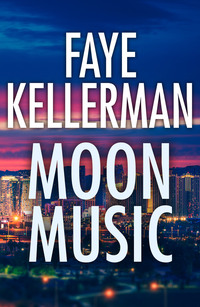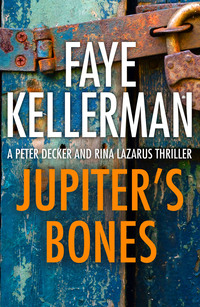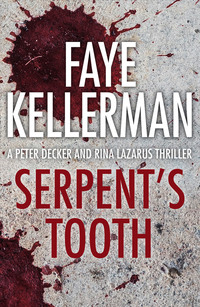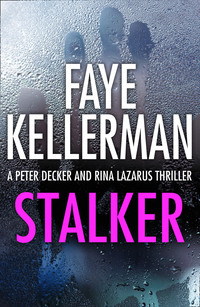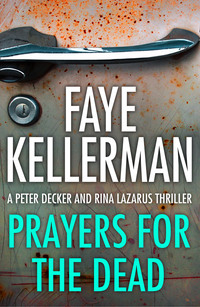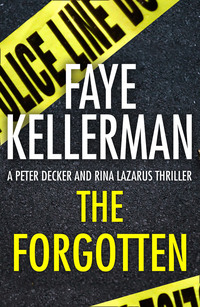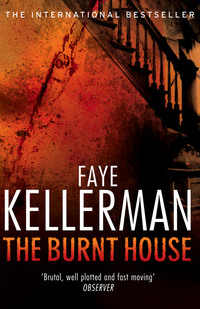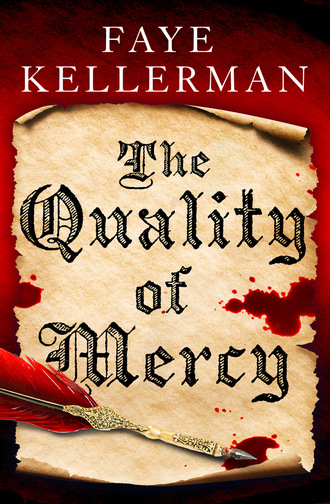
Полная версия
The Quality of Mercy
She was taken aback by the vehemence of his refusal.
“I’m flattered by your offer, Rebecca,” he explained. “Tis simply to say that the ring is yours.”
“It would do me pleasure if I could give it to you.”
“No, daughter, I cannot take it,” he said. “But I see your heart is pure with kindness toward me. The next time we minister to the Queen, you must wear it.” He slipped it back in Rebecca’s bag and kissed her red, wet cheek. “Such a splendid piece of jewelry. Then you’ve still much favor with the Queen.”
“She said I may come to court anytime.”
“Then her invitation is still—”
“Father,” Rebecca implored in a whisper, “do not force me! I pray you with all my heart, Father, please do not compel me to go.”
She began to sob again.
“Becca, my love …” Roderigo cleared his throat, touched by her emotional cries. “No one will force you to leave the family you hold so dear. But you must tell me why. You’ve always been so headstrong, so independent, having shown in the past no need of my advice or assistance. Explain yourself to me.”
Rebecca was silent. How could she begin to tell him? Of the Queen and her perverted ways. Of her foul breath, slimy hands, and serpentine tongue. Her father wouldn’t believe her, no matter how she’d insist it to be the truth. The worst insult under heaven—to be called a liar.
“I cannot express it into words.” She wiped her tears with her handkerchief and sniffed the spicy aroma of her pomander. Would that it could remove the stench of the old woman from her nostrils. And Rebecca knew that odor was not a condition of advanced age. Grandmama smelled as sweet as the rosewater she bathed in.
Roderigo hugged her again. “Never mind. As long as the Queen bears no ill will toward you.”
Or to me.
“None whatsoever, Father. I assure you.”
Rebecca had made certain of that. She’d accommodated the Queen’s every whim, quenched her every desire. The memories made her weak in the stomach.
Roderigo put his mouth against his daughter’s ear and whispered, “She really is a wretched old harpie, is she not?”
For the first time in twenty-four hours, Rebecca smiled sincerely.
Chapter 11
Christopher Mudd had caught his coney—an old windbag of a knight sorely drunk on cheap booze. The dupe was fat with a honey-tipped beard and surprisingly spindly legs. Wearing a scarlet doublet and brown hose, the gallant looked like an apple perched atop two wooden sticks.
A bene gull he’d be, thought Mudd. He thanked the stars for his good hap and prayed that there were many coins in the coney’s purse—enough to please the master. Ye Gods, Mackering had been in a fierce mood of late, constantly cursing, smacking him for bringing in too little money. Waving the sharp dagger in front of his nose and threatening to cut it off.
Mudd shuddered at the thought.
He’d worked for Mackering for five years, his specialty tricks of falling: the spoon drop, the madman, the drunk, the one inflicted with falling sickness. The master had been a decent jack in the past, but now he’d turned into a rabid dog—biting without cause.
All because of that player, Harry Whitman. Tush, was Mudd sorry that he’d come with the master on the high roads up North. Mackering had changed for the worse since that fateful day, the day they’d cheated Whitman at dice. He’d become fretful with a temper that exploded like rain clouds.
Mudd sighed and rubbed his nose, appreciating its wholeness. May his hap stay good, may the coney’s purse be heavy tonight.
It wasn’t too long before the gull stumbled out of the tavern, his arms looped around a clubfooted jack, the two of them singing loudly about a whore of Greenwich. The dupe’s companion was thin and seemed to be having a hard time keeping the lardish knight afoot.
Mudd wondered how much he could cheat out of the sod. Two shillings? Maybe three, if luck be a sweet wench. He had watched the knight for at least an hour, and the gallant had spent freely, buying sack for all those interested in being bored by his tales. The night might prove very good indeed. Maybe, then, with his hands filled with shillings, Master Mackering would be satisfied.
The two dolts stopped. A moment later the knight undid his codpiece and pissed against the side of the alehouse. Now was Mudd’s chance. He approached the fat man with an unsteady gait, swaying markedly as if he, too, were inebriated. At the correct moment he bumped into the gallant, bounced to his right and stumbled to the ground.
“A thousand pardons, good sir.” Mudd spoke loudly, slurring his words.
The gallant looked at Mudd’s torn clothes and dirty face and sneered.
“Watch where you’re going, cur!” he yelled, trying to reattach his dangling codpiece.
“A thousand and thousand pardons, my good sir,” Mudd answered. He attempted to upright himself and again fell to the ground.
“Nothing so repulsive as one who cannot hold his drink,” remarked the dupe’s crippled companion.
“Where are the constables when they are needed?” the gallant boomed. He was fully dressed now, tripping over his feet but not falling. “Constable! Constable!”
“Try the watchmen,” suggested the man with the clubfoot.
“Tis a bonny idea,” agreed the knight. “Watchman! Watchman!” He leaned against the cripple and his weight knocked both of them over.
“Stupid sot,” the knight said to Mudd. “Now see what you’ve done!” He managed to stand up, and pulled Clubfoot to his feet. “Are you well, sir?” the knight asked his companion, brushing dust off his sleeves.
“Aye, quite well,” Clubfoot said. He hobbled around in a circle. “No thanks to this churl!”
“Out of my sight before I step on you, beggar,” the gallant said, nudging Mudd’s stomach with the tip of his boot. “Watchman! Constable! Watchtable!”
“Now, a God’s will,” Mudd said, “what have I found?” He picked up a piece of paper and unwrapped it. A gilt spoon spilled to the ground.
The gallant’s eyes widened.
Mudd stared stuporously at the item, then picked it up. “What shall I do with such a geegaw?” he asked.
“Sir,” the cripple said. “I marvel at your good luck!”
“Good luck?” Mudd acted confused. “What good is this?”
The gallant smiled. “Let me help you to your feet, dear man.”
Mudd was yanked upward. He recoiled from the fat knight’s breath, reeking of garlic and cheap sack.
Clubfoot said, “Sir, that geegaw is worth—”
The gallant said, “Sir, you have found a trinket worth nothing.”
“My luck,” Mudd pouted. “Marry, I wish someone else would have found this. What shall I do with such trumpery?”
The knight brushed the dirt off Mudd’s shredded jerkin. “I shall take it off your hands.”
“Nay, perhaps I shall give it to my mother!” Mudd swayed on his feet. “Perhaps I shall give it to my sister.” He stared at it and examined it closely. “Perhaps I shall throw it away. Would I have a crown instead of such a silly toy?”
“A crown, nay,” said the cripple. “But I’ll trade you a shilling for it.”
“You said it is but a toy,” Mudd said, confused. “Yet you offer me a shilling?”
“Aye … It strikes my fancy,” the cripple replied.
“I shall give you two shillings,” the gallant countered, shaking off the arm of the cripple.
Clubfoot became angry.
“He tries to cheat you,” he said. “I shall give you four shillings.”
“This lame jack is a scoundrel,” the gallant retorted. “Five.”
Mudd stared at Clubfoot. It was now his turn to up the auction.
“Five is too grand a price for me,” the cripple said. “I have only four shillings, twopence in my doublet.”
“I will give you five shillings for that trinket, sir,” the gallant cried.
“Aye, take it for five shillings.” Mudd shrugged, giving him a vacant smile. He held out the spoon, then swiftly retracted it. “You’d not be cheating would you?”
“Nay, good sir, never!” the gallant insisted. “The trinket is … for my wife. She is fond of such toys.”
The cripple said, “Sir, I suggest you take it to a goldsmith. I suspect it could be valuable.”
The knight glared at him.
Mudd pondered the suggestion, then threw up his arms. “Who has the time for such tomfoolery?” he said. “Tis but a toy to me, and five shillings is five shillings. If you want it for five shillings, I’ll strike a bargain with you.”
“Done,” the gallant said. He quickly handed Mudd the coins and snatched the spoon from his hands.
“He has cozened you,” the clubfoot announced.
“Out of here, you lame fool,” the knight yelled.
“Bah!” said the cripple. “Drunken dolt.”
“Pay him no attention,” the gallant said after Clubfoot left. “Perhaps this chance meeting, dear sir, will bring us sweet fortune.”
“Aye, good luck indeed, indeed,” Mudd said. He smiled an idiot’s grin.
He tottered away. When safely out of sight, he laughed. Five shillings! So much more than he had hoped for. He opened his jerkin and felt inside his pockets. There were four of them left—four small, wrapped packages of “valuables”—dross metal spoons covered with gold paint. At five shillings apiece, he’d walk away with a goodly bung—a purse full of gold. A sweet evening it was proving itself to be.
Aye, plenty of coins for Master Mackering, and perhaps a groat or two for dicing—ifin he could filch the money without the master knowing it. Marry, Mackering had eyes in the back of his head—always seemed to know which of his men was stealing from him. Dangerous it was to cheat the master.
Mudd felt in his other pocket for the pint of spirits. A necessity—a goodly bribe that caused the head of the watchman to turn in the other direction. Whittled cows, the watchmen were—all of them. In case the booze was less than persuasive, the dagger hidden in the waistband of his galley slops would convince the most mulish of constables to get him hence.
Walking a few more blocks, Mudd heard raucous laughter coming from the inside of another alehouse—the Greenhouse Inn. He stopped. Hidden by shadows, he peered through the red lattice of the inn’s window. Twas a bonny tavern that would serve his purposes well, populated with a merry crowd sated to the gills. It wouldn’t take long before another coney was caught. Aye, lots of money to be made this night. Mudd leaned against the building, a smirk on his lips.
And he waited.
Chapter 12
The stink of tallow.
Shakespeare’s head felt leaden, his body thick with sleep. Unsure of the hour, he wondered if dawn had awakened from her cyclical slumber. Was he dreaming?
He drifted back into sleep, dreamt of demons prancing around the maypole. They had piggish bodies, forked tails, black eyes, and wore black hoods. Fire sparked from their mouths and nostrils as they hissed like snakes.
But Mayday had passed a week ago with no such demons at all. Bonfires all night. London’s revels lasting until dawn.
No black demons.
Or had they been there without him noticing?
Again the stench of burning fat assaulted Shakespeare’s nostrils.
He opened his eyes.
Dark, damp, and cold.
Slumped over his writing table, his folded arms a pillow for his cheeks, he realized he had fallen asleep while working, as he had so many times in the past. Had he been asleep for a minute? An hour?
He raised his head, saw sparkling points of golden light. He stared at the flickering wick, at the shadows leaping off of the walls as if engaged in his dream’s ritual maypole dance. Nocturnal creatures. His quill lay atop the foul papers of his latest playbook, bleeding ink over the stage directions.
Damn his carelessness! Now he’d have to rewrite the page.
The garlic mutton he’d eaten for supper that night lay like stone in his stomach. His mouth felt dry and numb. He ran his tongue over his lips and stared at the goblet of sack resting a foot away from his hand. Slowly, he extended his arm and clasped the stem of the cup. Raising his lips to the edge of the vessel, he took a small sip; the act of drinking seemed to tire him further. He lowered his head back into the cradle of his arms, but kept his eyes open.
The room suddenly became dark. But not dark.
Shakespeare felt his heart beat rapidly, his body wet with icy sweat.
Another shadow—much bigger and darker. It seemed to blacken the room. It loomed over him, then was silhouetted by the glow of candlelight in witches’ colors.
Shakespeare’s mind was a swarm of loose thoughts.
Black and orange. Orange and black.
Incarnate of evil from doggish pack.
What wolfish scheme hast thou conspired
that pricks my skin and sets it afire?
“Who are you?” he asked.
No answer.
“Are you touchable?” He extended his hand outward and sliced through air. “Surely I am dreaming. My eyes deceive my wits.”
“We have met,” said a voice. Deep, guttural. A voice like none he’d ever heard. Or had he?
Shakespeare began to tremble.
“I ask you again, sir. Who are you?”
The voice answered:
“The specter that is to thee nearest
is one thou holds so very dearest.
He comes to give thee counsel wise
to rid thee of the filthy lies
that thou hast heard with thine own ears,
inflicting wounds unto thy peer.”
“Harry?” Shakespeare asked in a whisper.
The apparition said:
“My love for thee was never ending,
not as a sapling, ever bending
in a tempest of rumors thick and deep
that makest me moan, alas, cry and weep.”
“Harry,” Shakespeare repeated. “Thou art an illusion. I hear, yet I hear nothing. Thou art whirls of imagination brought upon by overwrought nights of too much toil.”
“Nay, tis not so,” the voice protested. “I am the ghost of thy mentor—thy fellow—Harry Whitman.”
Shakespeare shook fiercely.
“Tis true,” the apparition insisted.
Shakespeare shivered violently. His closet had turned so cold. He asked, “What counsel doth thou offer me?”
“Let the buried rest in peace.”
“My inquiries into thy death—”
“They are false! Lies! They cut me savagely!”
“The innkeeper Chambers spake that—”
“Chambers! A sinner! A cozener! A rogue! Believe him not.”
“Dear Harry,” Shakespeare said. “If thou desireth me to stop my inquiries, thou must confess to me. Who murdered thee? And why?”
The voice answered:
“It matters not the way I leave,
tis ’nough that thy pure heart doth grieve
for a hapless life ended, etched in blood.
And chewed and spat like vomitous cud.
Be kind, dear Will, spare me sorrow,
Erase thy revenge come the morrow.”
The waning flame began to sputter.
“Don’t leave me, Harry,” Shakespeare whispered.
The light dimmed, then finally died. Shakespeare felt a sharp rap on the back of his neck, then found himself floating in total blackness.
A serpent had wrapped around his arm, squeezing the blood from the limb. Shakespeare tried to cry out but no sound issued from his throat. As he attempted further cries, he felt his windpipe tighten, constricting his breath. He began to panic. The snake winked at him, an evil look glowing in its eyes. It hissed and clamped more tightly around his arm, its slithery body taut with muscular ripples.
The snake began to speak, but the words were unintelligible.
Louder and louder, until it screamed.
“Wake up, Willy!”
At last Shakespeare understood.
Still panting, he barely opened his eyes, opened them enough to see Cuthbert Burbage yanking on his lifeless arms.
“It’s already past daybreak, Willy! There’s work to be done!” Cuthbert tugged at him mercilessly. “Wake up, you besotted swine!”
“I’m up,” Shakespeare croaked.
“You speak but you’ve not awakened.”
In sooth, Shakespeare thought. He said nothing, and suddenly realized that his head was throbbing with pain. Too much drink? Impossible. He’d drunk very little last night. Or so it had seemed to him. His mind was a gale of confusion. He wished that Cuthbert would let go of his arm.
“My apologies in advance,” Cuthbert said, releasing him at last.
Shakespeare began to doze off. A minute later he was drenched with water. He bolted upward.
“For God’s sake!” he screamed.
Cuthbert placed the empty water pitcher on the floor, found a dry rag and offered it to Shakespeare. “Dry your face.”
Shakespeare was seized with the shakes.
“Marry,” Cuthbert said. “You’re ill.”
“No,” Shakespeare insisted. “I’m well. Just wet and cold.” He stood up on quivering legs and dried his face. “I was having a beast of a nightmare. I thought a serpent was upon me.”
“Let me help you dress—”
“I’m able to dress myself, thank you,” Shakespeare snarled.
He managed to change his soaked chemise, but it took a great deal of effort. His head throbbed. A bad attack of fever, he thought. No worse, he hoped.
“You’re flushed, Willy,” Cuthbert said. “Go back to sleep. And for the love of heaven, sleep on your pallet. No one can get a proper night’s rest slackened over on a desktop.”
“The voice is the voice of Cuthbert, but the words are words of Anne.” Shakespeare slipped on his hose.
“You have need of your wife.” Cuthbert looked around the room. It was covered in dust. “Or at the very least, a wench with a broom.”
Shakespeare picked up his doublet and looped his hands through the armholes, straining with each movement. He heard Cuthbert gasp, and looked up.
“What is it?” he asked.
“Your head.” Cuthbert reached out to touch the back of his friend’s skull, but quickly withdrew his hand.
Shakespeare felt it immediately—a large, crusty lump at the base of his head. He picked off a piece of the scabrous wound and regarded the dried blood.
“Someone attacked me last night,” he announced.
“Bigod! Who?”
“Harry’s ghost.”
“What?” Cuthbert whispered.
“Harry’s ghost,” Shakespeare repeated. “At least that’s who it said it was. I never did see its face. Nor was its voice tuned as Harry’s.” He held up a loose sleeve. “Help me put this on.”
Cuthbert sank down onto the straw pallet in the corner of the room. His face was white.
“Whatever it was knocked me over the head,” Shakespeare said. “Why Harry’s ghost would desire me harm, I know not.”
He noticed that Cuthbert had begun to tremble, and sat down next to him. Shakespeare prodded his friend’s arm.
“Get hold of your wits, man. We have a performance this afternoon. Best we get in as many as we can while the theaters are still open. In the last few weeks Black Death has stalked the city like a fiend gone mad.”
Cuthbert took the sleeve absently.
“Do you think you were actually visited by Harry’s spirit?” he asked.
Shakespeare shrugged. “I know not.”
“What counsel did it offer you?”
“We didn’t talk too long. I do remember asking myself this—why was I falling back asleep when there still remained so much more to say? Now I realize that the ghost—or whatever it was—blunted my senses lest I question it too keenly.”
They sat in silence. Shakespeare pulled the sleeve away from Cuthbert and, with a heavy sigh, drew it over his arm.
“At least truss up the points for me,” he said.
“Merciful Jesu,” Cuthbert said, tying the sleeve to the doublet. “If it were Harry’s ghost, then the dead shall not rest in peace until the murder has been avenged.”
“On the contrary,” Shakespeare said. “The voice told me to cease my inquiry in Harry’s murder. Which makes me think that it was indeed a man and not a spirit.”
“Or maybe it was nothing at all, Willy.” Cuthbert stood and began to pace. “Perhaps you drank too much sack last night.”
“Only a sip or two.”
“Are you sure—”
“A God sointes, Cuthbert, do you honestly think I bashed in my own head? My imagination may be fanciful, but this bump isn’t a product of conceit. Nay, I wasn’t overpowered by sack last night, but something in the sack overpowered me—nightshade, or perhaps foxglove or Indian acacia. I’m sleepy from potion, my friend. I can barely stand without toddling.”
“And you think a spirit did this to you?” Cuthbert asked.
“Either a specter or an imposter. Throw me my other sleeve. It’s on the desktop.”
“Are you going to listen to its caveats?”
“No.”
Cuthbert tossed Shakespeare the sleeve.
“You’re not?”
“Not at all. Had it been polite, I would have considered its admonitions. But since it has shown itself to be a rude animal, I will disregard it totally.”
“And you will continue to look for Harry’s slayer?”
“I shall … though it may take me years to find him.” Shakespeare finished tying his sleeve and stood up. “It’s not the first time it has taken me years to achieve my goals.”
It had taken Shakespeare three years to go from horse tender to stagehand, another three years until he’d been made an equal sharer in the fellowship. Whitman had been Shakespeare’s staunchest supporter. Richard Burbage, the fellowship’s lead actor after Harry, had been vehemently opposed to the idea. Their argument had been overheard by the entire troupe.
Shakespeare is strictly mediocre as a tragedian, Burbage had boomed.
Agreed, orated Whitman in a louder voice than Burbage.
His voice barely projects over the shouts of the groundlings, Burbage argued.
Agreed, said Harry.
He has little presence on stage.
He had a good comic presence in his last performance, Harry said, defending his charge.
Burbage cried, He almost upstaged me! No, no, I refuse to have equal billing with an upstart.
Harry said, If he is not part of the fellowship, then the fellowship will have to do without Whitman. He added slyly, See how you do playing against me instead of with me, Burbage.
Richard Burbage paled. Whitman was the biggest draw in London.
Burbage said, Divine Jesu, Harry, Shakespeare is a good bookwriter. But why do you insist that he be part of the fellowship?
Because I love that boy, Harry said. He’s a dreamer … as I once was …
The next day Shakespeare had been voted in as a sharer.
Yes, Shakespeare had had patience then, he would have patience now. He said to Cuthbert, “I shall know Harry’s murderer and he shall know me.”
“Some things are better put to rest, Willy.”
“Harry was cut down before his time. The rogue responsible must pay. Harry’s soul must be put to rest.” Shakespeare held back his grief. “Enough said. Where did I put my shoes?”
“They’re in front of the window.”
Shakespeare walked over and picked them up. “They’re frozen.” He looked at Cuthbert. “I make it not a habit to work in front of an open window in such weather. The cold freezes the ink.”
“The spirit—or the imposter—must have come in through the window,” Cuthbert said. “Obviously it neglected to secure the latch when it departed.”
“Now that’s a curious thing indeed,” said Shakespeare. “I was always made to understand that ghosts could pass through solid matter.”
“Well, your spirit may not have passed through the brick wall, but it must have been an accomplished climber. Your room is at least twenty feet up from the street. Why didn’t the apparition simply climb the stairway and jiggle the door?”


